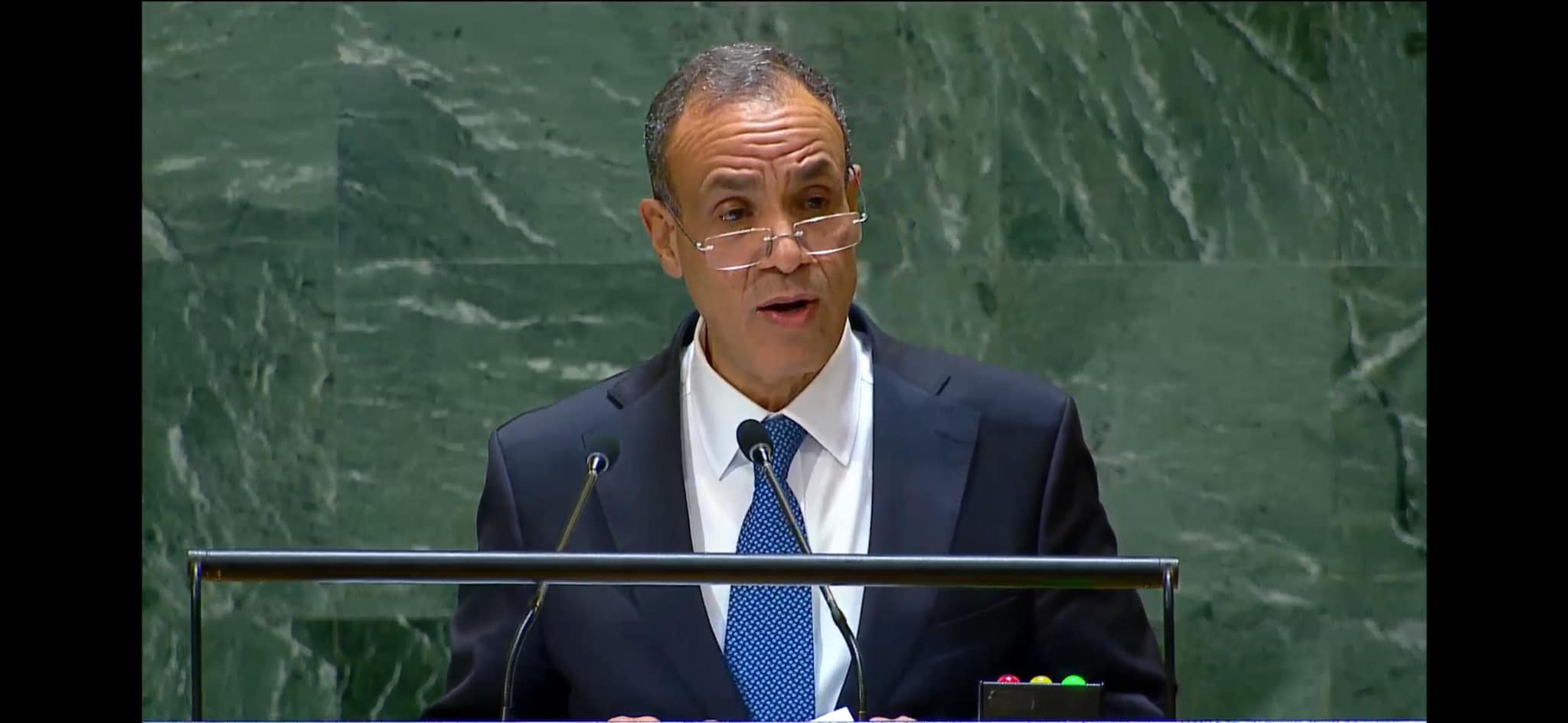
FM Badr Abdelatty delivers Egypt’s speech at the high-level General Debate of the 79th session of the UN General Assembly (UNGA 79) on 28 September 2024 - Egypt's MFA
CAIRO – 29 September 2024: Minister of Foreign Affairs Badr Abdelatty stated that Egypt “will not turn a blind eye” to a threat to its existence as he raised the dispute around the Grand Ethiopian Renaissance Dam (GERD) before the high-level General Debate of the 79th session of the UN General Assembly (UNGA 79) on Saturday.
"It is a mistake to think that Egypt will turn a blind eye or tolerate a threat to its existence," Abdelatty said, stressing that Ethiopia disregards the lives of the Egyptian and Sudanese people with GERD.
He added that Egypt will continue to closely monitor the developments in the filling and operation of the Ethiopian Dam, while preserving all rights guaranteed under the United Nations Charter to take necessary measures to defend its interests and the well-being of its people.
Abdelatty stated that Ethiopia has continued unilateral actions on GERD in blatant violation of international law, particularly the Declaration of Principles agreement of 2015 and the Presidential Statement of the Security Council in 2021.
He emphasized that Egypt had been involved in 13 years of fruitless negotiations, which concluded in December 2023 in light of the Ethiopian unilateral acts.
“Despite Egypt's sincere efforts, Ethiopia persisted in adopting a policy of procrastination and obstinacy, disregarding facts and attempting to impose a fait accompli by constructing and operating the Ethiopian Dam in violation of international law, regardless of its impact on the lives of millions in the downstream countries of Egypt and Sudan,” he said.

Pursuit of binding deal
Given Egypt's heavy reliance on the Nile for its water requirements, the country perceives the dam as a significant threat to its already strained water supply.
Egypt and Sudan had endeavored to secure a binding agreement with Ethiopia concerning the GERD to protect their water rights. However, Ethiopia proceeded with dam filling and operation without their consent.
Egypt, grappling with severe water shortages, depends on the Nile for its water supply, with a per capita water supply of around 550 cubic meters per year—well below the globally recognized threshold for water scarcity set at 1,000 cubic meters per person.
Egyptian President Abdel Fattah El-Sisi has stressed Egypt’s water share as a “red line.”
“No one should envision themselves as beyond the reach of our capabilities … Egypt's water is sacrosanct. Our response in case of [meddling with the Egyptian water share] will reverberate throughout the stability of the entire region,” Sisi said in press remarks in 2021.
Dominance over Nile
Despite Ethiopia's defense of the dam as beneficial for downstream countries and its own power generation, Egypt's Minister of Irrigation and Water Resources, Hani Sewilam, stated last year that Ethiopia is constructing the dam to assert political dominance over the Nile River.
Egypt announced last year that the revived negotiation track over the long-standing dam dispute had concluded, as the fourth and final trilateral round of talks with Ethiopia and Sudan failed to produce results.
Egypt attributed the breakdown to Ethiopia's persistent refusal of proposed middle-ground technical or legal solutions to safeguard the interests of all three countries.
In early September, Abdelatty addressed a letter to the president of the United Nations Security Council, condemning Ethiopia's recent actions regarding GERD as a continuation of its provocative stance toward its neighbors.
He added that such actions "threaten the stability of a region, where most countries seek to enhance cooperation and integration among each other rather than sow discord among peoples bound by ties of brotherhood and shared destiny."
Comments
Leave a Comment